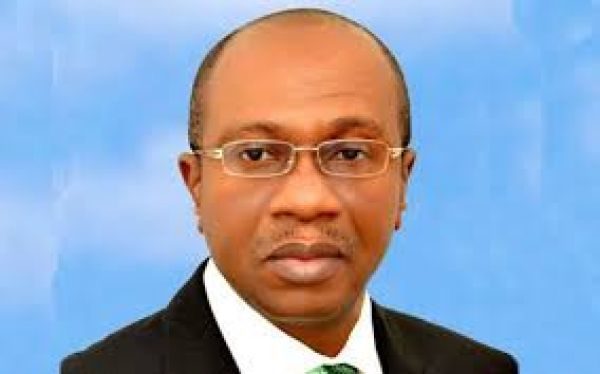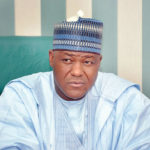GOVERNOR of the Central Bank of Nigeria (CBN), Mr Godwin Emefiele, has reiterated the need for manufacturers and managers to urgently harness local raw materials to increase domestic production.
In his keynote address at the seminar for Finance Correspondents and Business Editors on Saturday, August 27, 2022, Emefiele said the bank’s new 100 for 100 Policy on Production and Productivity (PPP), which is targeted at harnessing local raw materials in Nigeria to increase domestic production, as well as exports through “our deliberate credit and other supports, will soon begin to yield quality results.”
More so, he said the RT200 FX initiative designed to take advantage of Nigeria’s large domestic production to other regional markets is targeted to increase foreign exchange inflows to the economy and support exchange rate stability.
In addition, Emefiele said the on-going work at the Dangote Refinery, when fully completed, would stop fuel importation just as witnessed in the cement, sugar and fertiliser market.
According to him, this special seminar organised by the Central Bank of Nigeria, with the theme, ‘Policy Options for Economic Diversification: Thinking Outside the Crude Oil-Box,’ is timely in “our quest and resolve to change the narratives of depending on a mono-product oil-led economy, towards building a broad-based and well diversified economy that guarantees overall macroeconomic stability.”
Emefiele added that the quest for building a more sophisticated economy anchored on agriculture, MSMEs, industrial and manufacturing concerns have become the major component of monetary policy.
“Nigeria has largely depended on the oil sector for revenue generation over the past four decades and the sustained decline in crude oil production has continued to negatively undermine the performance of the economy. Thus, there is the urgent need for a conscientious effort to diversify to other non-oil sectors.
“As I have often said, it is important that we work to create an economy that will enable us to feed ourselves, create jobs for our teeming youths and improve the standard of living of our people. With our population growing by over three per cent per annum over the past seven years, against a less than steady growth in output since 2019, expanding the production and industrial capacity of the economy must be given special attention to ensure overall macroeconomic stability,” he stated.
The CBN under Emefiele, has taken major leaps to diversify the economy away from largely oil-based economy through its numerous interventions.
His words, “We have supported non-oil sectors such as agriculture, manufacturing, health care, education, power and aviation and other allied economic value chains.
“You may recall that our flagship Anchor Borrowers’ Programme (ABP) that heralded the recent rice revolution in Nigeria has changed the long-standing dependence on imported rice as the country is not only dependent on domestic production, but we have now become a rice exporting country.
“The Commercial Agriculture Credit Scheme (CACS) is a major special purpose vehicle to support commercial farmers in the country in different value chains including oil palm, cotton, cocoa, among others.
“Our continued support to the manufacturing sector and MSMEs has been yielding great results as the implementation of 44 items not valid for FX for imports has been revealed. Let me take this medium to inform you once again that our intervention in the health sector, for example, has begun to reduce the health care tourism being sought outside the country which is helping to conserve our foreign exchange and improve our well-being.”
Under the National Digital Economy Policy and Strategy (2020-2030), the industry is poised to accelerate the private sector-led efforts towards building a nation where digital innovation and entrepreneurship are used to create value and prosperity for all, the governor further observed.
Consequently, the Nigerian payment ecosystem has witnessed tremendous improvement over the years.
To consolidate its efforts towards engendering a digital economy, the Bank, Emefiele said, deployed the eNaira, Africa’s first Central Bank Digital Currency (CBDC) in preparation for the payment landscape of the future, given the potential benefits that would accrue to a digital economy.
Through the evolution of offline payments channels like agent networks, USSD, wearables, cards and near field communication technology, the eNaira would give access to financial services to underserved and unbanked segments of the population.
The eNaira platform also provides an innovative layer for products and services to be built with the aim of enhancing Nigerians’ participation in the digital economy and promoting further development of a burgeoning Fintech ecosystem.
In his paper presentation, Dr Biodun Adedipe, the Chief Executive Officer, B. Adedipe & Associates, said no country can develop with its borders widely open.
According to him, Nigeria and Nigerians must make deliberate efforts through homegrown policies to produce what citizens need and use what is produced within the country.
YOU SHOULD NOT MISS THESE HEADLINES FROM NIGERIAN TRIBUNE
Insecurity: 5,000 Nigerian Children May Die Of Starvation By October —UN
THE United Nations has raised the alarm that no fewer than 5,000 children in war-ravaged northeastern Nigeria will die of starvation in the next two months unless the world raises the necessary funds for intervention…
My London Meetings With Obasanjo, Tinubu, Atiku, Obi In Nigeria’s Interest —Wike
RIVERS State governor, Nyesom Wike, on Friday said that his London meetings with the presidential candidate of the All Progressives Congress (APC), Senator Bola Tinubu, Labour Party presidential candidate, Peter Obi, the presidential candidate of the Peoples Democratic Party, Alhaji Abubakar Atiku and former President Olusegun Obasanjo were in the interest of the nation…
Bandits Stole My Chickens, Cut Off My Arms —Zamfara Man
A victim of a bandits attack, Ismail Mohammed, has explained how his life took a turn for the worse with the loss of his arms….






